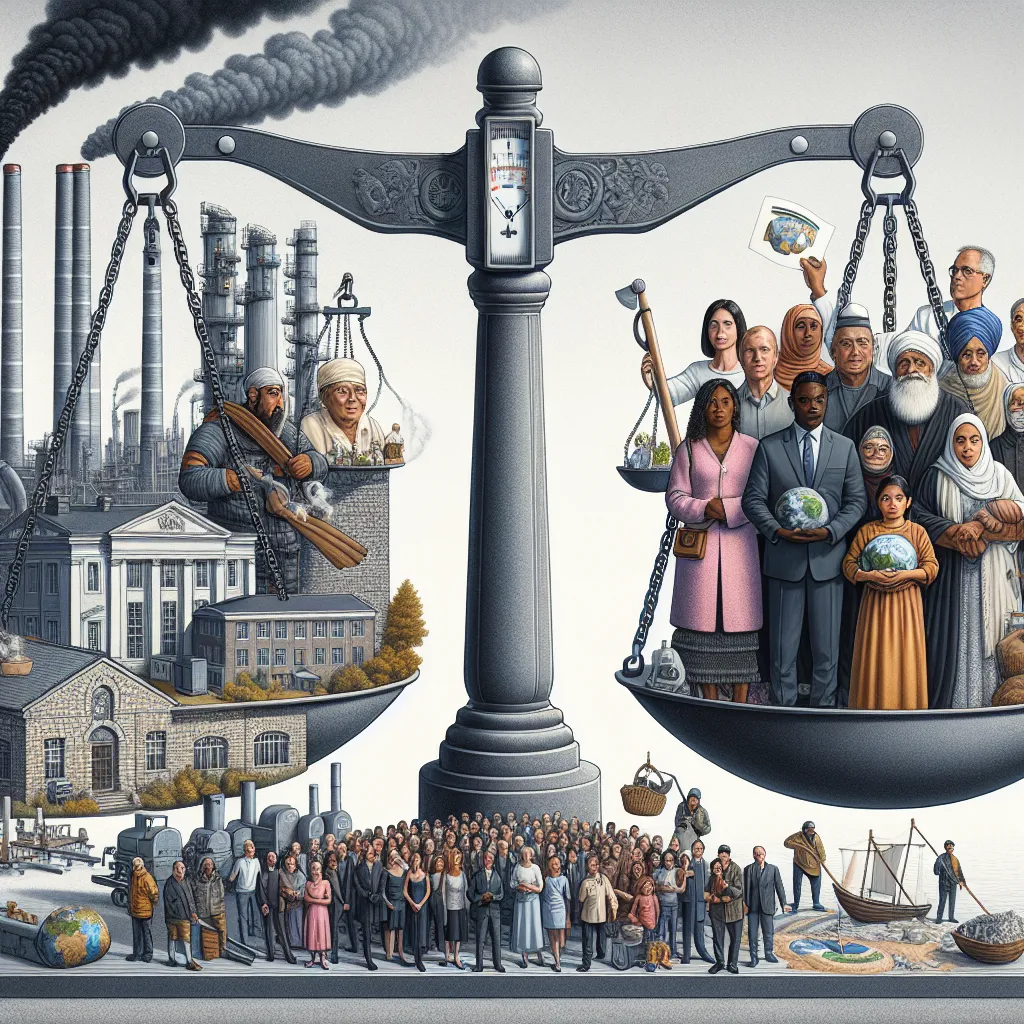Carbon footprint reduction is a topic of growing importance in our environmentally conscious world. This theme has been appearing with increasing frequency in IELTS Writing Task 2 questions, reflecting its relevance in contemporary discussions. Based on recent trends, we can expect this topic to continue featuring prominently in future IELTS exams. Let’s explore a sample question that aligns closely with those seen in actual IELTS tests:
Some people believe that reducing carbon footprint is the responsibility of governments and large companies, while others argue that individuals can play a significant role. Discuss both views and give your own opinion.
Analyzing the Question
This question requires us to:
- Discuss the view that governments and large companies are responsible for reducing carbon footprints.
- Explore the perspective that individuals can significantly contribute to carbon footprint reduction.
- Provide our personal opinion on the matter.
Sample Essay
Here’s a model essay addressing this question:
In the face of growing environmental concerns, the debate over who bears the primary responsibility for reducing carbon footprints has intensified. While some argue that this duty falls on governments and large corporations, others contend that individuals can make a substantial impact. In my opinion, effective carbon footprint reduction requires a collaborative effort from all sectors of society.
Those who believe that governments and large companies should take the lead in reducing carbon emissions have valid points. Governments have the power to implement far-reaching policies and regulations that can significantly impact national and even global carbon output. For instance, they can set emission standards for industries, invest in renewable energy infrastructure, and create incentives for eco-friendly practices. Similarly, large corporations, with their extensive resources and influence, can make substantial changes to their operations that result in significant reductions in carbon emissions. These might include adopting cleaner technologies, optimizing supply chains, or investing in carbon offset programs.
On the other hand, proponents of individual responsibility argue that personal choices cumulatively have a considerable impact on overall carbon emissions. Every individual’s daily decisions, from transportation choices to consumption habits, contribute to their carbon footprint. By opting for public transport, reducing meat consumption, or choosing energy-efficient appliances, individuals can significantly lower their personal carbon emissions. Moreover, these individual actions can create a ripple effect, influencing friends, family, and communities to adopt more environmentally conscious behaviors.
In my view, the most effective approach to reducing carbon footprints involves a synergy between governmental, corporate, and individual efforts. While governments and large companies have the capacity to implement broad, systemic changes, the success of these initiatives often depends on individual participation and support. For example, a government’s investment in recycling infrastructure is only effective if citizens actively participate in recycling programs. Similarly, companies’ efforts to produce more sustainable products are most impactful when met with consumer demand for these items.
In conclusion, while governments and large corporations have significant power to effect change, the role of individuals in reducing carbon footprints should not be underestimated. A holistic approach, combining top-down policies and grassroots actions, is crucial for meaningful and lasting reductions in global carbon emissions. By recognizing the interconnected nature of these efforts, we can work towards a more sustainable future for our planet.
(Word count: 368)
 Carbon footprint reduction concept
Carbon footprint reduction concept
Key Writing Tips
When addressing this topic, keep the following points in mind:
- Structure: Ensure a clear introduction, separate paragraphs for each viewpoint, and a concluding paragraph with your opinion.
- Balance: Give equal weight to both perspectives before presenting your own view.
- Examples: Use specific examples to support your arguments, such as government policies or individual actions.
- Vocabulary: Employ a range of environmental and policy-related terms to demonstrate your language proficiency.
- Coherence: Use linking words and phrases to ensure smooth transitions between ideas and paragraphs.
Essential Vocabulary
Here are some key terms to remember when writing about carbon footprint reduction:
- Carbon footprint (noun) /ˈkɑːbən ˈfʊtprɪnt/: The amount of carbon dioxide released into the atmosphere as a result of one’s activities.
- Sustainability (noun) /səˌsteɪnəˈbɪləti/: The ability to maintain an ecological balance without depleting natural resources.
- Renewable energy (noun) /rɪˈnjuːəbl ˈenədʒi/: Energy from a source that is not depleted when used, such as wind or solar power.
- Eco-friendly (adjective) /ˈiːkəʊ ˈfrendli/: Not harmful to the environment.
- Emissions (noun) /ɪˈmɪʃnz/: The production and discharge of something, especially gas or radiation.
- Carbon offset (noun) /ˈkɑːbən ˈɒfset/: A way to compensate for carbon dioxide emissions by participating in programs that reduce greenhouse gases.
- Sustainable development (noun) /səˌsteɪnəbl dɪˈveləpmənt/: Economic development that is conducted without depletion of natural resources.
- Green technology (noun) /ɡriːn tekˈnɒlədʒi/: Technology that is environmentally friendly.
Conclusion
The topic of carbon footprint reduction is likely to remain relevant in IELTS Writing Task 2. To prepare effectively, practice writing essays on related themes such as:
- The impact of individual lifestyle changes on global warming
- The role of international cooperation in addressing climate change
- The balance between economic growth and environmental protection
- The effectiveness of carbon taxes in reducing emissions
Remember to approach these topics with a balanced perspective, use specific examples, and showcase your vocabulary range. By mastering these skills, you’ll be well-prepared to tackle any question on environmental responsibility in your IELTS Writing Task 2.
To further enhance your understanding of environmental topics in IELTS, you might find it helpful to explore how to reduce your environmental footprint and the role of technology in reducing carbon footprints. These resources can provide additional context and vocabulary to strengthen your essays on this crucial global issue.


